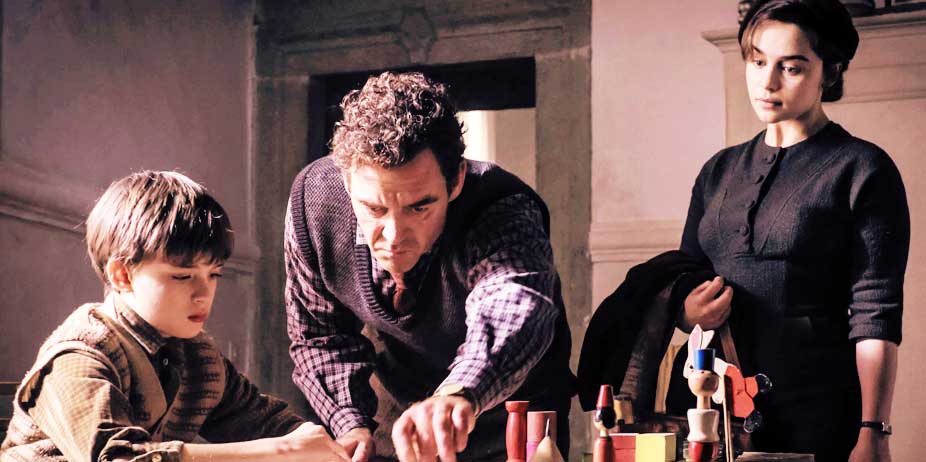Voice from the Stone (2017)
In the 1950s, Verena (Emilia Clarke) has a successful life helping children regain their voice, then leaving them to their loving parents care, and moving on to the next challenging case. Her psychological approach has brought her students back from traumatic experiences. And, she's about to meet her greatest challenge.
Jakob (Edward Dring) has not spoken since his mother's untimely death. His father, Kluas (Marton Csokas), is so desperate to help him that he hires Verena, in the hope she can get through to his son -- who seems to be listening to something no one else can hear. The exquisite old Tuscany house seems full of secrets... and past memories of a woman now gone, who appears to still communicate with her son through a crack in the wall.
Convinced she can jolt him out of his delusions, Verena tries different tactics and methods to open the boy up. And then she tries something she's never done before: she puts her ear to the crack and listens. And, she hears more than she bargained for. She starts to change. The family opens up to her. But will the house and its spirits drown her in their murky depths or let the child go?
This is part Jane Eyre, part ghost story, both and neither, with a great many unanswered questions by the end. But that may be why I liked it so much. It's an eerie story which raises a lot of questions, but does not seem intent on either being a horror tale or a romance. Is Verena becoming more herself, through that house, or is the house making her less like her former self? Is the spirit of the dead wife influencing her, possessing her, or becoming her? Certain things about it are a little odd; such as her total lack of inhibition in posing nude for her employer; we're left to assume she's less herself, and more his wife, in that moment than anything else, but the transition is so delicate, it might go unnoticed by a less attentive viewer. It's a quiet film. Some of the twists are predictable, but nonetheless interesting when they do come to light.
What works best is the unnerving setting, the sense that neither she nor the audience knows what's real. It watches like a fine novel reads, with little hints here and there of deeper motives, of sinister intent, but never quite becomes a horror story. I like gentle ghost stories and the ambiguities here didn't bother me (is she delusional, like Jakob, or is the woman's spirit truly not at rest? what did she want from Verena, a host or a replacement for herself?) on a spiritual level. I could have done without the fantasy nude love scene, though; it seems inconsistent with the glamour and subtlety of the rest of the film.
Sexual Content:
A man carves nude statues; a woman poses for him -- many
shots of her bare breasts. This fills her with lust, so she returns to her room
and writhes around in her bed, while fantasizing about them sleeping together
(the fantasies include movement, nudity).
Language:
Minor profanities.
Violence:
A woman dreams she is being bricked up inside a wall and
buried alive. A mention of bricking a cat into a wall, alive.
Other:
Ghosts. Reincarnation.

